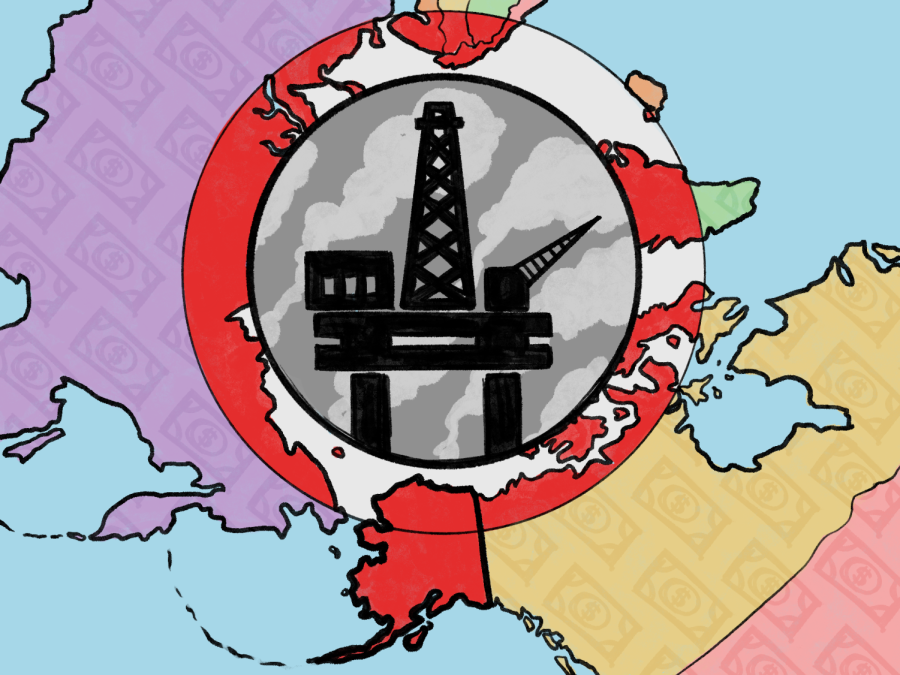OPINION: Alaska’s Willow Oil Project threatens Alaskan Natives and environmental health
Energy based company ConocoPhillips’s Willow Oil project poses a detriment to the environment, food sources, and Alaskan communities.
On Monday, March 10, U.S. President Joe Biden’s administration had approved the Willow oil drilling project in Alaska, angering climate change activists. ConocoPhillips is an energy based company that has been drilling for oil and gas in Alaska for years. The Willow Project was proposed by ConocoPhillips five years ago, which was originally approved by the Trump administration but was then reversed by a federal judge in Alaska in 2021.
During Biden’s 2020 campaign, he pledged to cease new oil and gas drilling on federal lands. With his support of the Willow Project, Biden has drawn criticism from environmental groups and Democrats who argue that the project runs counter to his climate goals.
CNN reported the project is planned to hold up 600 million barrels of oil in the area, and with the administration’s estimate, it would create enough oil to release 9.2 metric tons of carbon pollution a year, causing the planet to warm further. Moreover, ConocoPhillips claims that it will be able to generate between $8 billion and $17 billion in new tax revenue for federal governments. The company’s focus on financial gains results in a disregard for the potential environmental impacts of the project.
The financial considerations associated with the Willow Project heavily influenced its impacts on the environment. According to American Progress, carbon emissions could result in a cost of $19.8 billion or more. Additionally, the project is expected to disrupt subsistence food sources, which are a critical part of the local diet for over 70% of households in the area. The land of Nisquit, which sits on the border of the National Petroleum Reserve, is dependent on the sources around the area, like its harvest population.
Greenhouse gas emissions will harmfully affect the Alaska Native substances as well as wildlife. As a result of this threat, the cost of replacing them could exceed $20,000 per household. Supporters of Willow had claimed higher paying and local jobs from the establishment of the project. However, only 1% of the Alaska North Slope residents are able to work in the oil and gas industry, with qualified workers being specialized tradesmen and construction workers, who are usually hired from outside the local area.
With the approval from the Biden administration, climate advocates have portrayed the detrimental consequences the Willow Project can have on the environment. EarthJustice reported that Willow has become the largest proposed oil venture on U.S. soil, which is expected to cause significant global change, pose health risks to nearby communities and have a major impact on animal migration patterns while contributing to habitat destruction. With the excessive oil and gas being produced, the project fails to consider the impact on endangered species in the area, such as polar bears.
Willow is located on Alaska’s North Slope in the National Petroleum Reserve, an area owned by the federal government, which spans on the Beaufort Sea north of the Arctic Circle. Areas near the location of the project are habitats to Arctic birds and other wildlife. As it becomes surrounded by oil development, however, serious issues arise, such as the migration of certain animals. Moreover, the Arctic has significantly been affected by climate change, even prior to the approval of Willow. Transforming the area into an oil hub could further reduce efforts to shift toward cleaner energy sources and sustain a healthier planet.
Alaska Native communities on the North Slope are being negatively affected by the decision of the Biden administration. It is important to know the harmful impacts of the Willow Project on humans, wildlife and the environment – not just in Alaska but globally. The Biden administration should immediately revoke its approval of the Willow Project due to its destructive rather than constructive outcomes.


